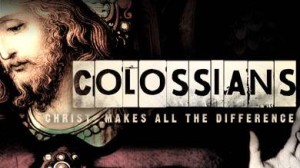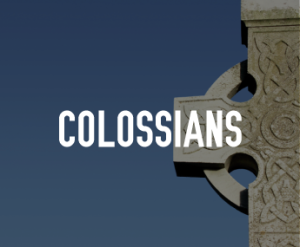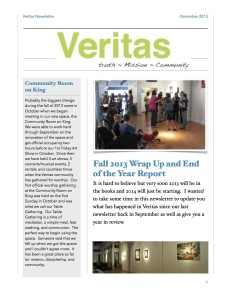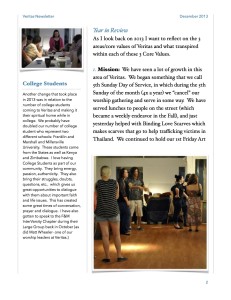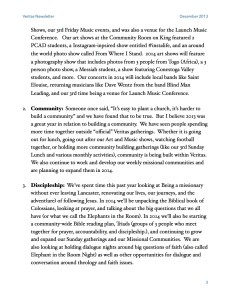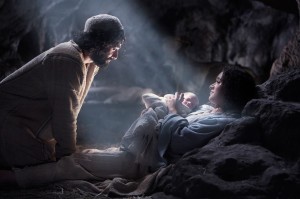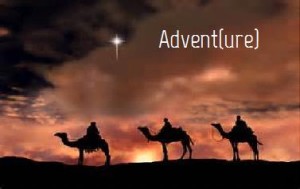 From February 25-27 I will be attending the Ecclesia National Gathering at the National 4-H Center near Washington DC. Ecclesia is a relational network of churches, leaders and movements that seek to equip, partner and multiply missional churches and movements. Veritas is currently discerning whether or not to affiliate with the Ecclesia Network (which doesn't mean that we would be leaving the Church of the Brethren). This is my 3rd National Gathering and I am very excited to be a part of this year's gathering due to the theme of the conference which is "Bringing the Word to Life."
From February 25-27 I will be attending the Ecclesia National Gathering at the National 4-H Center near Washington DC. Ecclesia is a relational network of churches, leaders and movements that seek to equip, partner and multiply missional churches and movements. Veritas is currently discerning whether or not to affiliate with the Ecclesia Network (which doesn't mean that we would be leaving the Church of the Brethren). This is my 3rd National Gathering and I am very excited to be a part of this year's gathering due to the theme of the conference which is "Bringing the Word to Life."
I was asked to write a blog piece about why I am attending the Ecclesia National Gathering. (If you want to learn more about the Ecclesia National Gathering go to: Ecclesia National Gathering and you can register for the National Gathering on their registration page)
So as I thought about the various reasons that I am taking time of our my schedule to go to this event, I realized that it comes down to 3 varying reasons.
1. Hot Button Issues and the Bible: We all struggle with parts of the Bible and understanding what they say and how to apply them to our postmodern, postChristian world in which we are now living. These are those Hot Button issues that sometimes I would rather either ignore or write off. Issues like understanding the God of the Old Testament and all the stories where it would seem that God justifies genocide. How do I as an Anabaptist committed to the Shalom of the world and following the Prince of Peace understand those war texts in the Old Testament? Do I say (like an ancient theologian..who was condemned as a heretic) that there are 2 Gods, the OT God and the NT God? No. So how do I understand those texts? That has been an area that I have struggled with a great deal and am super excited that William Webb will be doing a Focused Session entitled: Reading the War Texts- Redemptively.
Another Hot Button issue that seems like it never goes away is Homosexuality. What do you do with that Hot Button issue. It seems like the two most vocal positions are that Homosexuality is okay and not a sin, or Homosexuality is an abomination and the worst sin of all times. Neither I believe is helpful, in my opinion. How do you read the texts that speak about Homosexuality faithfully and redemptively? So I'm excited that William Webb (who by the way authors a great book entitled "Slaves, Women and Homosexuals:Exploring the Hermeneutics of Cultural Analysis) will be doing another Focused Session entitled: Reading the Homosexual Texts- Redemptively.
2. Kingdom of God Over the last few years my view on what the gospel is has radically changed and shifted and I am always seeking to understand the gospel more faithfully. And to understand the gospel more faithfully I believe one needs to understand what the Kingdom of God truly is. After all, the Kingdom of God is probably the most talked about and referenced topic in all of the New Testament. But we have so often gotten confused about the Kingdom of God. Either we have put the Kingdom as a future event out there for another time, or we have taken the opposite and put it for right now. I believe it is a now and not yet reality. One of the persons that has had a profound effect on my understanding of the Kingdom of God and the gospel of the Kingdom is Scot McKnight. Scot will be one of the featured speakers for the Ecclesia National Gathering and I'm excited to hear him speaking on issues like:SCRIPTURE’S GRAND NARRATIVE – KINGDOM, MISSION, & WORLD, THE (OTHER) KINGDOM OF JESUS: HOW JESUS REDEFINES KINGDOM IN SCRIPTURE and OUR CHURCHES IN GOD’S STORY: HOW THE KINGDOM “EXPANDS”. My only problem is that I know that some of Scot's Focused sessions will be at the same time as William's Focused sessions so which ones do I choose?
3. Relationship and Community This is probably one of the strongest reasons for me to be attending the National Gathering. Over the 3 years that I have been exploring Ecclesia, going to two National Gatherings, and attending the Missio Alliance Conference last year, and going to regional Ecclesia Gatherings, I have developed relationships with people who are amazing people of faith and passion. People who are committed to the Kingdom of God and the mission of God in this world. These are people who understand missional church planting (what we are seeking to do at Veritas) and have been there before. When I talk with them, ask them questions, and seek wisdom, I don't have to explain, defend, bring them up to speed (so to speak). They have been there before and can give me great advice based on their experience, not just reading. So I'm looking for some great relationship and community time with some great friends over dinner, and the after hours gatherings that always takes place.
So those are the 3 reasons that I will be attending this year's Ecclesia National Gathering from February 25-27 and hoping that it will help me Bring the Word to Life. Hope to see you there.


